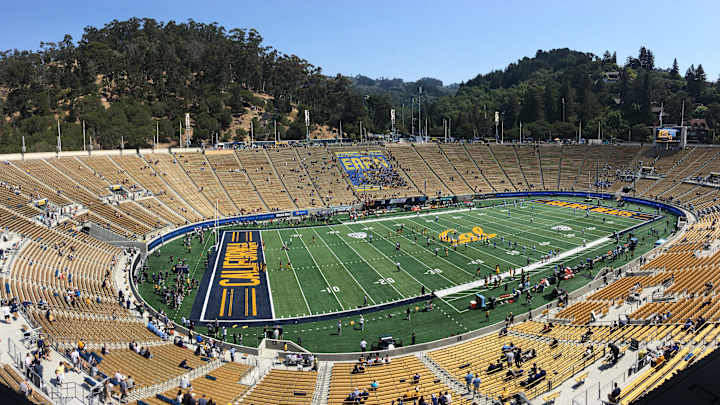Cal Football: NCAA President Says No Games Without Students on Campus

NCAA President Mark Emmert on Friday night made remarks that appear to cast further doubt on how and when college football will begin this fall.
Emmert, who appeared with Dr. Brian Hainline, the NCAA’s chief medical officer, in an interview shown on the NCAA’s official Twitter account, said it seems unlikely that all schools will be ready to begin competing in sports at the same time.
He also echoed what others have said by noting that games are probably not happening if students are not in classrooms.
“If you don’t have students on campus, you don’t have student-athletes on campus,” he said. “That doesn’t mean it has to be up and running in the full normal model, but you’ve got to treat the health and well-being of the athletes at least as much as the regular students. So if a school doesn’t reopen, then they’re not going to be playing sports. It’s really that simple.”
Neither Cal nor the Pac-12 Conference has announced any firm scheduling plans for the football season.
Currently, the Bears are scheduled to kick off their season on Saturday, Aug. 29 at UNLV. Their home opener is Sept. 5 against TCU and Cal will play its first Pac-12 game against Utah in Berkeley on Sept. 26.
But all of that is very much in flux as as governments and universities grapple with the COVID-19 pandemic.
Emmert's remarks on Friday night didn't spell out a concrete plan but certainly didn't offer encouragement to folks hoping the football season begins as scheduled.
Football programs want six weeks of conditioning and preseason camp, but that might be adjusted, Hainline said.
And as schools in different states operate on different timelines, Emmert said it's entirely possible teams will open their seasons at different times and not everyone will play a uniform number of games.
“All the various (NCAA) member committees and the conferences are all talking about: What does it mean if we have that sort of scenario where we’ve got different opening times or different opening models,” Emmert said.
“What does it mean if you look at a conference, for example, if a conference has some schools open and some not?” he added. “You can’t run a regular schedule if you’ve got that scenario. How do you adjust all the rules to provide as much flexibility as you possibly can to let student-athletes have a good experience in that season?”
*** Jake Curtis offers his thoughts on what the impact will be after Oregon's governor said Thursday there will be no large crowds in her state through the end of September:

Jeff Faraudo was a sports writer for Bay Area daily newspapers since he was 17 years old, and was the Oakland Tribune's Cal beat writer for 24 years. He covered eight Final Fours, four NBA Finals and four Summer Olympics.